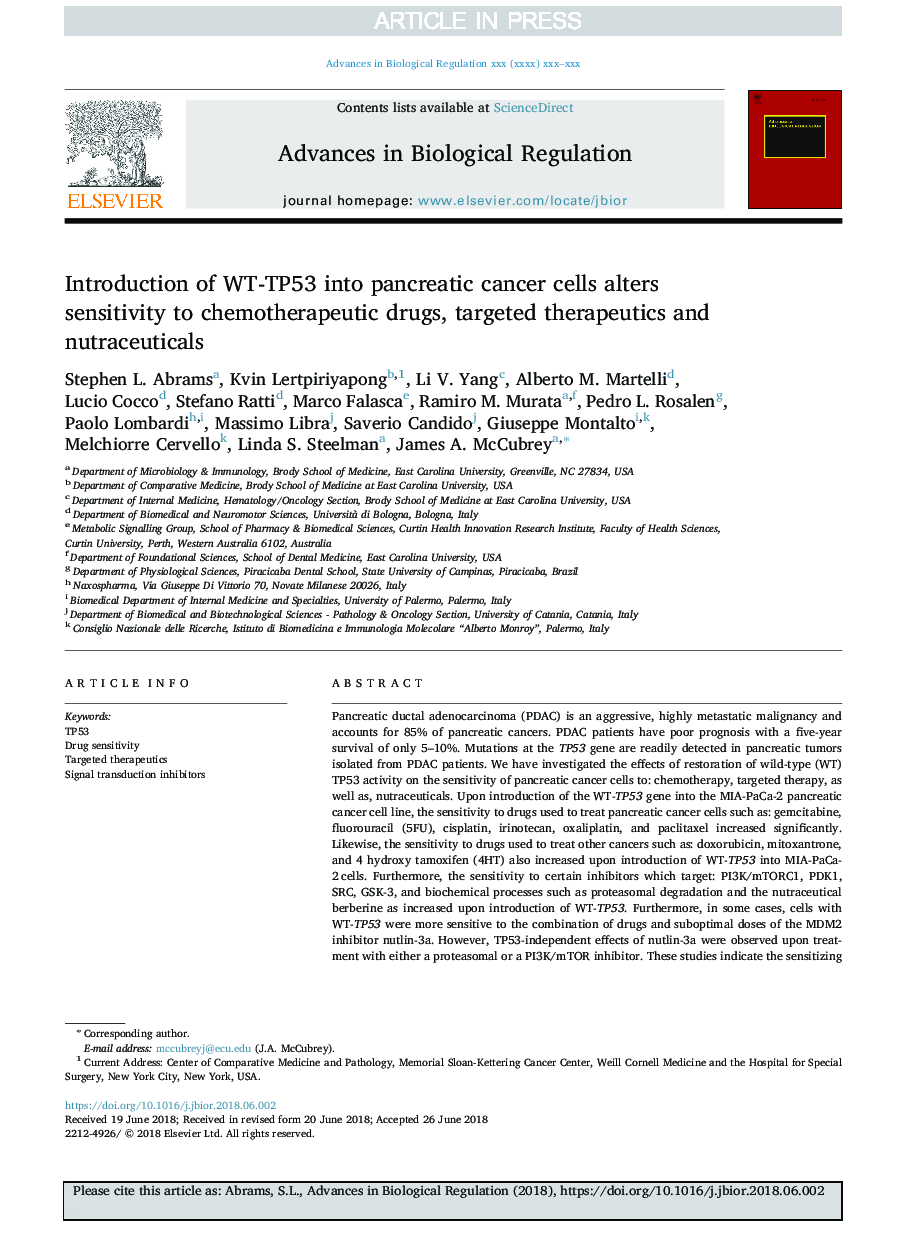| Article ID | Journal | Published Year | Pages | File Type |
|---|---|---|---|---|
| 8943667 | Advances in Biological Regulation | 2018 | 19 Pages |
Abstract
Pancreatic ductal adenocarcinoma (PDAC) is an aggressive, highly metastatic malignancy and accounts for 85% of pancreatic cancers. PDAC patients have poor prognosis with a five-year survival of only 5-10%. Mutations at the TP53 gene are readily detected in pancreatic tumors isolated from PDAC patients. We have investigated the effects of restoration of wild-type (WT) TP53 activity on the sensitivity of pancreatic cancer cells to: chemotherapy, targeted therapy, as well as, nutraceuticals. Upon introduction of the WT-TP53 gene into the MIA-PaCa-2 pancreatic cancer cell line, the sensitivity to drugs used to treat pancreatic cancer cells such as: gemcitabine, fluorouracil (5FU), cisplatin, irinotecan, oxaliplatin, and paclitaxel increased significantly. Likewise, the sensitivity to drugs used to treat other cancers such as: doxorubicin, mitoxantrone, and 4 hydroxy tamoxifen (4HT) also increased upon introduction of WT-TP53 into MIA-PaCa-2â¯cells. Furthermore, the sensitivity to certain inhibitors which target: PI3K/mTORC1, PDK1, SRC, GSK-3, and biochemical processes such as proteasomal degradation and the nutraceutical berberine as increased upon introduction of WT-TP53. Furthermore, in some cases, cells with WT-TP53 were more sensitive to the combination of drugs and suboptimal doses of the MDM2 inhibitor nutlin-3a. However, TP53-independent effects of nutlin-3a were observed upon treatment with either a proteasomal or a PI3K/mTOR inhibitor. These studies indicate the sensitizing effects that WT-TP53 can have in PDAC cells which normally lack WT-TP53 to various therapeutic agents and suggest approaches to improve PDAC therapy.
Related Topics
Life Sciences
Biochemistry, Genetics and Molecular Biology
Biochemistry
Authors
Stephen L. Abrams, Kvin Lertpiriyapong, Li V. Yang, Alberto M. Martelli, Lucio Cocco, Stefano Ratti, Marco Falasca, Ramiro M. Murata, Pedro L. Rosalen, Paolo Lombardi, Massimo Libra, Saverio Candido, Giuseppe Montalto, Melchiorre Cervello,
